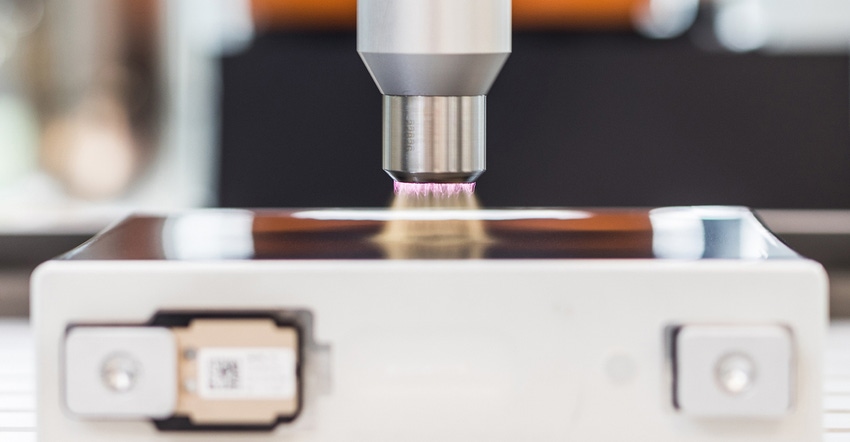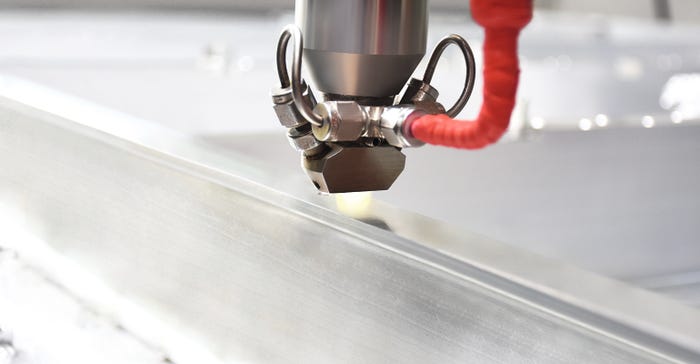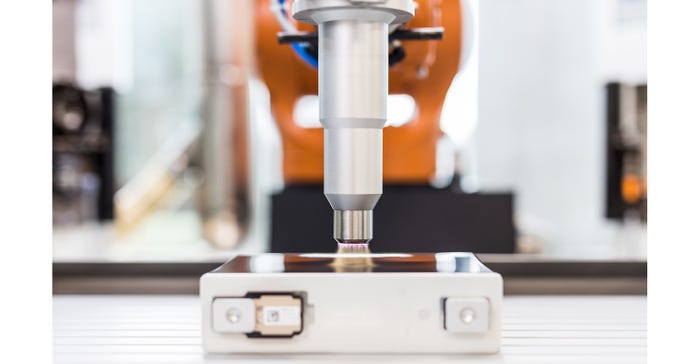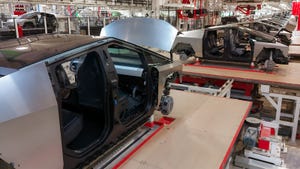Plasmatreat's technology integrates easily into production lines and has environmental advantages.
May 17, 2023

Plasma pretreatment is a key technology for microfine cleaning, surface activation, and nanocoating of practically all materials. When plasma, with its high energy level, comes into contact with materials, the surface properties of those materials change—for example, a hydrophobic surface may become hydrophilic. Excellent use can be made of this in the various steps of battery manufacturing. This can be used to great effect in the various stages of battery production and can be achieved with Plasmatreat's systems and equipment for activating, cleaning, and coating surfaces.
Plasma treatment in various process steps of battery manufacturing
These days, Plasmatreat’s plasma technology is used for all kinds of batteries: prismatic, cylindrical and pouch cells. The areas of application are extremely wide. For example:
Optimization of electrical insulation can be achieved via plasma cleaning prior to coating or the covering of individual cells with PET film.
In cell-to-cell bonding, meaning the adhesion of individual cells to the battery module, plasma treatment activates the cell surfaces after the application of the coating or the film covering, thereby improving adhesion and thus thermal conductivity.
The adhesiveness of structural bonding in a battery module, e.g., of the side walls, can be increased through plasma treatment of the components.
Plasma technology is also used for cleaning battery terminals before contact (wire bonding) as well as for coating the overall housing of the battery module for active corrosion protection or treatment of power electronics prior to application of the protective coating (conformal coating).

Plasma technology for battery applications demonstrated at Battery Show Europe
At the battery trade show in Stuttgart, Germany, the company will demonstrate Openair-Plasma surface treatment: Using a Plasma Treatment Unit (PTU) equipped with a robot, company representatives will demonstrate plasma treatment for various battery types and sizes. Plasmatreat partner Krüss GmbH will also be on hand to demonstrate the effects of plasma treatment with its equipment and analysis systems.
Using a Scara Janome, Plasmatreat will demonstrate the treatment of a prismatic cell prior to painting and subsequent stacking, focusing on the different handling options—whether an inline system, robotic nozzle guidance, or robotic component guidance.
“With the wide range of different nozzles and generators and the different handling systems we use for plasma treatment, we can offer our customers exactly the solution they need for their particular process and production environment.” stated Lukas Buske, Head of Plasma Applications at Plasmatreat. “With the Scara Janome, for example, there is now also a simple method for pretreating geometric products, such as the treatment of prismatic cells.”

Production line integration and environmental benefits
Plasmatreat’s plasma systems and system components for atmospheric plasma nozzle technology (Openair-Plasma) can be integrated into existing production lines and require only pressurized air and electricity for operation. In many cases, they represent an alternative that is less harmful to the environment.
In battery manufacturing, for example, they replace solvent-containing processes in adhesion or aggressive chemical processes that are used to protect against corrosion, such as galvanization. Supplemented by the high-tech plasma control unit (PCU) and innovative add-on modules for monitoring and diagnosing all process parameters, Plasmatreat states that it offers its customers seamless process controlling, consistently high quality, and precise reproducibility of applications.
“We have gained extensive experience in battery production over the last decade and know the critical points. With our knowledge, we support our customers with the various requirements that arise in the respective process steps - contributing to better battery performance, leaner manufacturing processes and lower costs,” stated Buske.
More information is available at: www.plasmatreat.de
About the Author(s)
You May Also Like





